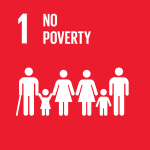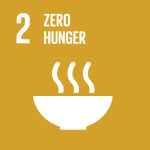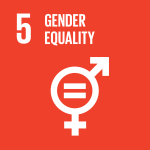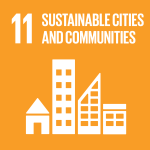
Photo: UNDP Somalia
View the full photo essay by UNDP in Somalia here.
“In my six decades of life, I have never witnessed a drought as merciless as the one we face today,” sighs Muhammad Ahmed Galow. At the age of 62, Muhammad stands a witness to the history of his country, Somalia, as a member of a family clan that has been pastoralists for generations.
His words carry the weight of experience, as he reflects on the impact of the past five years without significant rainfall, which has left his 30-member family, including his wife and 10 sons, struggling to buy food in the market.
Muhammad recalls his youth, a time when he roamed the rangelands of Somalia with his herds of camels, goats, and cows. During that time, they grew maize, beans, and watermelon, which was a supplement to their primary source of income – livestock.
“The long drought has reduced the amount of grass available so now we buy everything from the market, including the grain that we feed our cattle,” says Muhammad.

Somalia has been facing one of the worst droughts in its history, with some districts on the verge of famine. The situation is compounded by the existence of other crises, including long-drawn-out political instability and security threats, which hinder the delivery of humanitarian and development support.
In the face of complex challenges, local farmers and herders, such as Muhammad, hold onto hope and believe that solutions to Somalia's water crisis are attainable but they must be home-grown and locally driven.
“In Salhaley, our community collaborated with UNDP and constructed a large pond to harvest rainwater. Inshallah, this is providing drinking water to our community and few neighboring villages,” says Muhammad beaming with a sense of accomplishment.

Women in Salhaley feel especially relieved by the water harvest scheme.
Lul Ahmad, a 45-year-old mother of five, says women are traditionally responsible for collecting firewood and water and this means an extra burden to women during drought and an increased risk of violence when they have to venture far away from home to collect these resources.
“As a woman, I feel safer now with easier access to water after the construction of the water pond,” says Lul.
Muhammad, who is also a member of the water users committee in his village says there is an urgent need to construct additional water ponds and catchment dams in other areas as well. “There are lots of areas in need of water. The international community and donors should scale up their support,” he suggests.
The Salhaley water pond is just one of the 35 water infrastructures and rangelands developed or rehabilitated by UNDP across Puntland in partnership with the Puntland Ministry of Energy, Minerals and Water and Ministry of Environment and Climate Change. The rangelands were restored through community-led plantation, protection measures, public awareness campaigns, and proactive law enforcement by local authorities.
These initiatives, which cover an area of 3,500 hectares, have improved access to water for over 50,000 drought-affected households, of which 42% are headed by women.

Funded by the Global Environment Facility’s Least Developed Countries Fund, UNDP’s support also included putting in place a comprehensive resilience strategy and a longer-term planning for the state government of Puntland. Government officials and community members were trained on water and rangeland management, nurseries were set up, local people were mobilized to plant trees and raise awareness against cutting them down for charcoal, and businesses were set up to produce fuel-efficient cookstoves.
“People have directly benefited from our interventions. Water scarcity has been reduced in the areas where we provided rainwater harvesting solutions. We have also built the capacity of related officials on natural resource and integrated water resources management,” says Mohamed Isse, Director at the Puntland Ministry of Environment and Watershed Management.
"With continued support from all quarters, we look forward to a more resilient Somalia,” says Isse.
“Our commitment to resilience in Somalia, exemplified through initiatives like those in Puntland, remains strong. Nevertheless, the scale of need demands a concerted effort towards achieving greater impact. Effective partnership and collaboration are crucial in addressing the significant challenges posed by climate change, environmental degradation, and disaster mitigation to ensure a sustainable future for Somalia,” says Sophie Kemkhadze, UNDP’s Deputy Resident Representative in Somalia.
Story by Kamal Raj Sigdel with input from Abdul Qadir and Awil Abdinor, UNDP Somalia






